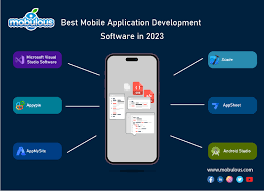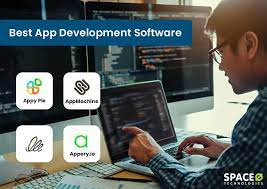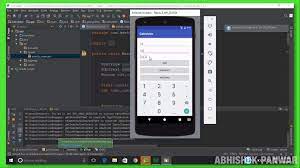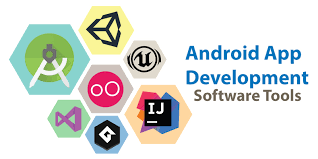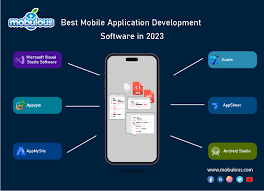Mastering the Art of Android App Development: A Guide for Developers
The World of Android App Development
Android app development has become a crucial aspect of the digital landscape, with millions of users relying on Android applications for various purposes. As the most widely used mobile operating system globally, Android offers a vast market for developers to showcase their creativity and innovation.
Why Develop for Android?
One of the primary reasons developers choose to create applications for the Android platform is its open-source nature. This allows for greater flexibility in customizing and optimizing apps to meet specific user needs. Additionally, the Google Play Store provides a massive distribution channel for reaching a broad audience worldwide.
Tools and Technologies
Android app development involves utilizing a variety of tools and technologies to create robust and feature-rich applications. Some essential tools include Android Studio, an integrated development environment (IDE) specifically designed for building Android apps, and the Android Software Development Kit (SDK), which provides developers with the necessary resources and APIs to create engaging apps.
Key Considerations
When embarking on an Android app development project, developers need to consider factors such as user experience design, performance optimization, security features, and compatibility across different devices and screen sizes. Adhering to best practices in coding and following Google’s guidelines can help ensure the success of an app in the competitive app market.
The Future of Android Development
As technology continues to evolve rapidly, the future of Android app development holds exciting possibilities. Trends such as artificial intelligence (AI), augmented reality (AR), and Internet of Things (IoT) are shaping the way developers create innovative apps that enhance user experiences and streamline everyday tasks.
Conclusion
In conclusion, Android app development offers endless opportunities for developers to showcase their skills and creativity in building cutting-edge applications that cater to diverse user needs. By staying informed about emerging trends and leveraging advanced tools and technologies, developers can stay ahead in this dynamic field.
6 Essential Tips for Successful Android App Development
- Follow the Material Design guidelines for a cohesive and user-friendly interface.
- Optimize your app for performance by minimizing resource usage and implementing efficient algorithms.
- Test your app thoroughly on various devices to ensure compatibility and responsiveness.
- Implement proper security measures to protect user data and prevent vulnerabilities.
- Regularly update your app to fix bugs, introduce new features, and stay current with Android platform changes.
- Engage with the developer community, seek feedback, and continuously improve your skills through learning resources.
Follow the Material Design guidelines for a cohesive and user-friendly interface.
Following the Material Design guidelines in Android app development is essential for creating a cohesive and user-friendly interface. By adhering to these guidelines, developers can ensure consistency in design elements, layouts, and interactions across different screens and devices. This not only enhances the overall user experience but also makes the app intuitive and visually appealing to users. Material Design principles focus on simplicity, clarity, and accessibility, helping developers create apps that are easy to navigate and understand for users of all levels of expertise. By incorporating these guidelines into app development, developers can achieve a polished and engaging interface that resonates with users.
Optimize your app for performance by minimizing resource usage and implementing efficient algorithms.
To enhance the performance of your Android app, it is crucial to focus on optimizing resource usage and implementing efficient algorithms. By minimizing resource consumption and employing streamlined algorithms, you can significantly improve the speed and responsiveness of your application. Efficient coding practices and strategic utilization of resources not only enhance user experience but also contribute to the overall success of your app in a competitive market. Prioritizing performance optimization during the development process can lead to a smoother and more efficient app that meets user expectations and delivers a seamless experience.
Test your app thoroughly on various devices to ensure compatibility and responsiveness.
Testing your app thoroughly on a variety of devices is a crucial step in Android app development to guarantee compatibility and responsiveness. By conducting extensive testing across different devices, you can identify and address any potential issues related to screen sizes, resolutions, and performance. This proactive approach not only enhances the user experience but also ensures that your app functions seamlessly across a wide range of devices, ultimately leading to higher user satisfaction and engagement.
Implement proper security measures to protect user data and prevent vulnerabilities.
Implementing proper security measures is paramount in Android app development to safeguard user data and mitigate potential vulnerabilities. By incorporating robust encryption protocols, secure authentication mechanisms, and regular security audits, developers can instill trust in users and ensure that their sensitive information remains protected from unauthorized access. Prioritizing security not only enhances the app’s credibility but also demonstrates a commitment to maintaining user privacy and upholding industry standards for data protection.
Regularly update your app to fix bugs, introduce new features, and stay current with Android platform changes.
Regularly updating your Android app is essential to ensure its optimal performance and user satisfaction. By addressing and fixing bugs promptly, you enhance the app’s stability and reliability. Introducing new features through updates keeps your app fresh and engaging for users, encouraging continued usage and attracting new downloads. Moreover, staying current with Android platform changes ensures compatibility with the latest technologies and security standards, helping your app remain competitive in the ever-evolving mobile landscape.
Engage with the developer community, seek feedback, and continuously improve your skills through learning resources.
Engaging with the developer community is a valuable tip for Android app development. By actively participating in forums, attending meetups, and seeking feedback from fellow developers, you can gain insights, exchange ideas, and stay updated on industry trends. Continuous learning through online resources, courses, and workshops is essential for enhancing your skills and staying competitive in the ever-evolving field of app development. Embracing a growth mindset and being open to feedback will not only help you improve your technical abilities but also foster a supportive network of peers who can inspire and guide you on your journey to becoming a proficient Android developer.







